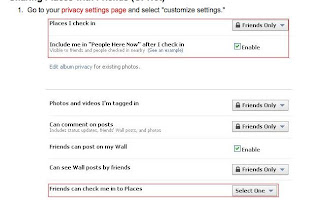There's Trouble again in Facebook land, and that starts with T and that rhymes with P and that stands for Places.
Per a really interesting article in Ad Age that describes a "real life" experiment in trying out the new Places feature on Facebook in real life, there are a lot of aggravated people. The issue at hand is again the DEFAULT settings that Facebook arrogantly selected including one that enables anyone to check anyone in to a location, true or not, desired to be revealed or not.
You would think Facebook would have gotten the clue from the Beacon fiasco, but not so much.
There are a lot of good articles on Places to learn more (like on Mashable ) if you want, but as always, I think the reader comments (including my own) especially on this particular article are a reflection of the feelings of many. It all feels very similar to the uproar created by Beacon which infamously automatically posted purchases made online via Facebook connected sites to one's wall. The Beacon anecdote that circulated as an example of a good idea gone wrong was the guy who cancels on a date, only to have the movie tickets he purchased posted on his Facebook page, to his girlfriend's dismay. Now imagine being location-outed by a friend to the delight of a stalker-ish ex, or your boss if you're playing hookey!
We have got to pull the reins in on giving power to the people and keep it with the person.
The majority of commenters on this story echo how I feel, and why I immediately disabled the ability of someone else to "check me in" on Places. While I have a lot of respect for Read, Write Web content, they are not as much concerned about "asynchronous" check-ins. But they DO bring up another issue - that of labeling a place with a less-than-desirable name...like, say, your own home, or a restaurant you didn't love...and having it stick.
So, if you agree, and I think most do, go to your privacy setting immediately.
 Here's a how-to from my @rww source.
Here's a how-to from my @rww source.
